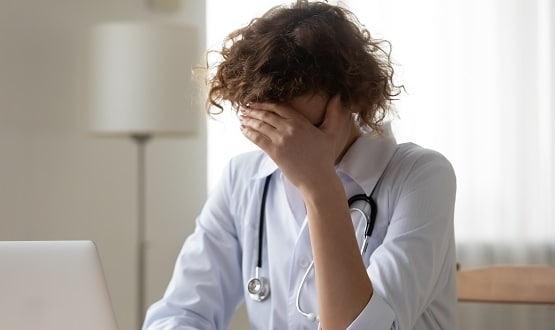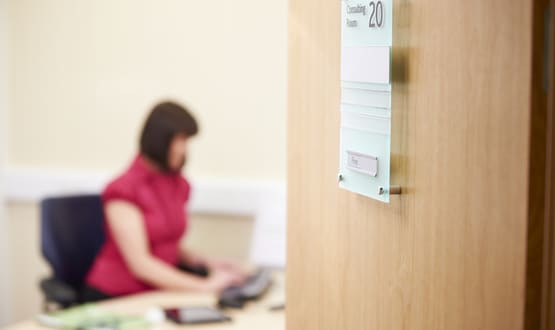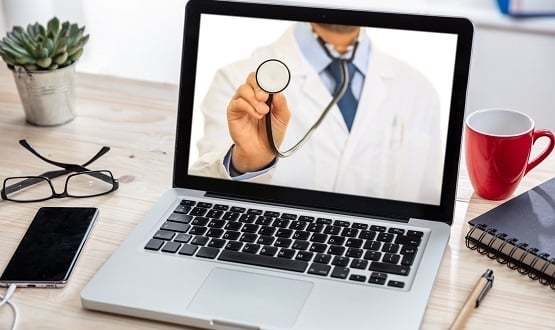Technology ‘part of the jigsaw’ to bolster GP numbers, Royal College says

Greater investment in technology is “part of a jigsaw” needed to help end mounting pressure on GPs but if not used correctly “can increase workload”, the Royal College of GPs has said.
A Nuffield Trust analysis for the BBC this week revealed the number of GPs per 100,000 people has fallen from nearly 65 in 2014 to just 60 last year.
Patient groups have warned it’s causing problems booking appointments, while the British Medical Association (BMA) GP branch said workloads are now “unmanageable”.
Dr Steve Mowle, honorary treasurer for the Royal College of GPs (RCGPs) and a GP in South London, said: “GPs have always embraced new technology, and tech is going to play an increasing role in the care we deliver to patients, and how they access general practice services, in the future and there is potential to use technology to address workload, for example to cut down on bureaucracy and paperwork.
“But sometimes technology can actually increase workload, especially at first – and initiatives such as telephone and online consultations don’t necessarily reduce workload as a 10-minute GP consultation takes 10 minutes whether it is delivered face-to-face, over the phone, or online.”
Professor Helen Stokes-Lampard, chair of the RCGPs, said financial commitments for technology in both the NHS long term plan and new GP contract would help keep the NHS “sustainable”.
“We are optimistic about the future of general practice, the financial commitment to primary and community care in the NHS long term plan in England; the new five-year GP contract which promises that money will get to the front line; and pledges to ensure greater investment in technology are all part of a jigsaw that should help keep the NHS sustainable for the future,” she added.
“But GP numbers, which as this research shows are still falling, cannot be ignored.
“More must be done to keep our hard-working, experienced GPs in the profession for longer – not only are they vital to delivering vital care to over a million patients a day, but they have a huge amount of wisdom to impart to new colleagues.”
Last month the RCGPs launched its technology manifesto, calling for the prioritisation of joining up of IT systems across the NHS.
The All Systems GP document also recognises the potential that genomics, AI, digital medicine and robotics has to improve patient care and safety.
But it stresses widespread improvement will only be possible if robust, secure IT systems are in place that are seamlessly linked across the NHS.
Currently up to 80% of GP practices could soon be using outdated IT systems.
Launching the report Ms Stokes-Lampard said: “GPs want the latest, cutting-edge tech at our disposal but we need the basics to work first.
“That means everything from making sure that our computers don’t crash while issuing a prescription, to making sure our systems talk to those in all hospitals so that we can improve the care and experience that our patients receive throughout the NHS.”
The new GP contract, which came into effect on April 1, gives practices almost £1bn across five years to help fulfil ambitions laid out in the NHS long term plan.
Part of this includes GP practices ensuring that they can offer online consultations by April 2020 and making at least 25 per cent of appointments available for online booking by July 2019 – a moved that is hoped will reduce pressure on stretched services.
The Nuffield Trust believes a further 3,500 GPs are needed to bolster the NHS.
Currently the shortages in GPs means the average doctor has 125 more patients to look after than they did in 2014.




